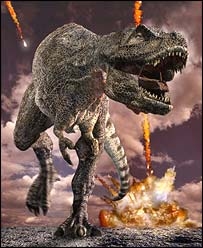|
From the time of the extinction of the dinosaurs to the more recent flooding of Brisbane, it's been obvious our domicile on Earth has always been (while we may not want to confront it) a hostile environment.
Since "It's not fair" and "It's not easy" are just assessments and not "the truth", and assessments aren't the source of any measure of empowerment, what I'd like to flesh out in this conversation is a powerful view of whatever's considered not fair, a powerful view of whatever's considered not easy.
A powerful view of whatever's considered not fair is "It's the way it is, and it isn't the way it isn't.". A powerful view of whatever's considered not easy is "It's the way it is, and it isn't the way it isn't.". The assessments "It's not fair" and "It's not easy" aren't powerful since they're aligned with opinions about the way things should be. Remember, Planet Earth didn't come with any guarantees things would be fair or easy here. "It's the way it is, and it isn't the way it isn't" is powerful since it's not aligned with opinions about the way things should be. "It's the way it is, and it isn't the way it isn't" is powerful since it's aligned with the physical universe.
